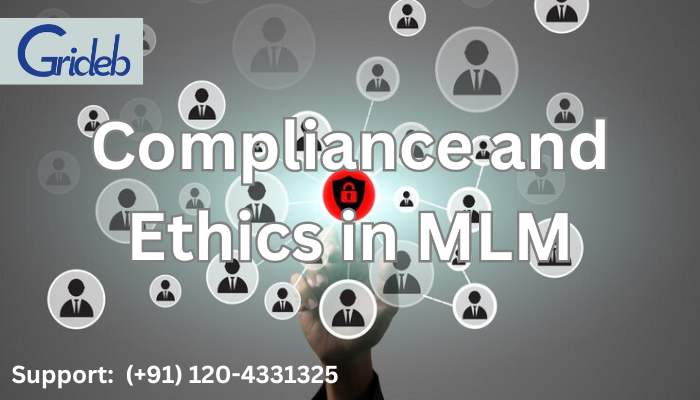Navigating Compliance and Ethics in MLM: Building Trust and Sustainability

Introduction:
Multi-Level Marketing (MLM) businesses often face scrutiny due to concerns about compliance with regulations and ethical practices. However, by prioritizing transparency, integrity, and adherence to legal standards, MLM companies can build trust with consumers and distributors alike. In this blog post, we'll explore the importance of compliance and ethics in MLM and provide actionable tips for maintaining integrity while pursuing success in this industry.
1. Understanding Regulatory Compliance:
Discuss the regulatory framework governing MLM businesses, including consumer protection laws, pyramid scheme regulations, and direct selling guidelines. Highlight the importance of staying informed about legal requirements at both the national and international levels.
2. Transparency in Compensation Plans:
Explain the importance of transparency in MLM compensation plans, ensuring that distributors understand how they will be compensated for their efforts. Encourage MLM companies to provide clear and accurate information about earning potential, avoiding exaggerated income claims that could mislead potential recruits.
3. Ethical Marketing Practices:
Emphasize the importance of honesty and integrity in marketing materials and sales pitches. Discuss common ethical pitfalls to avoid, such as making false product claims or using high-pressure sales tactics.
4. Training and Education:
Advocate for robust training programs that educate distributors about compliance requirements, ethical standards, and best practices. Highlight the role of ongoing education in fostering a culture of compliance and ethics within MLM organizations.
5. Monitoring and Enforcement:
Discuss the importance of monitoring distributor behavior and enforcing compliance policies. Highlight the need for swift and appropriate action in response to violations of ethical standards or regulatory requirements.
6. Building Trust with Consumers:
Explore strategies for building trust with consumers, such as providing quality products, honoring refund policies, and maintaining transparent communication. Discuss the long-term benefits of prioritizing consumer trust in terms of brand reputation and customer loyalty.
7. Industry Collaboration and Advocacy:
Encourage MLM companies to collaborate with industry associations and regulatory bodies to develop and promote ethical standards. Advocate for proactive engagement in public policy discussions to shape regulations that support ethical business practices in MLM.
Conclusion:
Compliance and ethics are essential pillars of sustainability and success in the MLM industry. By prioritizing transparency, integrity, and adherence to regulatory standards, MLM companies can build trust with consumers and distributors, fostering long-term relationships and sustainable growth. Remember, ethical behavior is not only the right thing to do but also a strategic advantage in today's competitive marketplace.